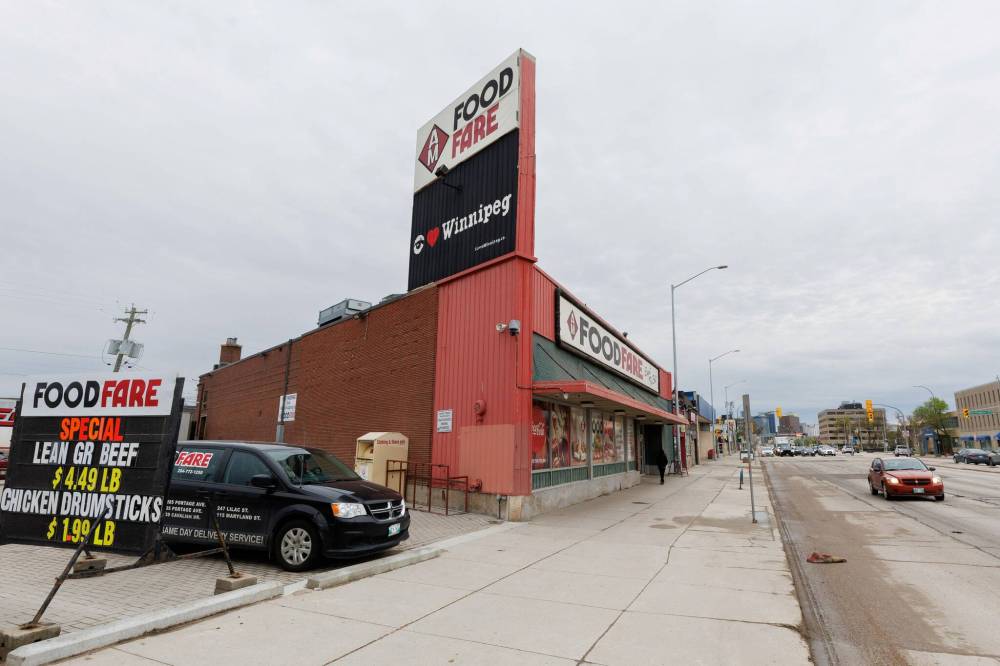Finding a solution to a complex issue
Advertisement
Read this article for free:
or
Already have an account? Log in here »
To continue reading, please subscribe:
Monthly Digital Subscription
$0 for the first 4 weeks*
- Enjoy unlimited reading on winnipegfreepress.com
- Read the E-Edition, our digital replica newspaper
- Access News Break, our award-winning app
- Play interactive puzzles
*No charge for 4 weeks then price increases to the regular rate of $19.00 plus GST every four weeks. Offer available to new and qualified returning subscribers only. Cancel any time.
Monthly Digital Subscription
$4.75/week*
- Enjoy unlimited reading on winnipegfreepress.com
- Read the E-Edition, our digital replica newspaper
- Access News Break, our award-winning app
- Play interactive puzzles
*Billed as $19 plus GST every four weeks. Cancel any time.
To continue reading, please subscribe:
Add Free Press access to your Brandon Sun subscription for only an additional
$1 for the first 4 weeks*
*Your next subscription payment will increase by $1.00 and you will be charged $16.99 plus GST for four weeks. After four weeks, your payment will increase to $23.99 plus GST every four weeks.
Read unlimited articles for free today:
or
Already have an account? Log in here »
Hey there, time traveller!
This article was published 30/05/2024 (558 days ago), so information in it may no longer be current.
The chaos unfolding at a downtown Winnipeg grocer is a prime example of how bad things can get when the social contract breaks down.
Food Fare, operated by the Zeid family, has been combating escalating incidences of shoplifting in recent months, particularly at its West End location, with things hitting a boiling point after an April 28 altercation between a supervisor and an Indigenous woman accused of shoplifting which resulted in violence.
Condemnation of the store and its management was swift, most notably from the Assembly of Manitoba Chiefs, which terminated its business relationship with Food Fare.

MIKE DEAL / FREE PRESS
The Foodfare at 905 Portage Avenue.
Two weeks after the April 28 incident, five masked attackers assaulted staff at the store. On May 3, three men carrying Mohawk warrior flags demanded to see the worker who punched the woman (that worker has been suspended), describing themselves as “angry natives” and vowing to return “until he’s fired.”
Earlier this week, two cars owned by members of the Zeid family were set on fire in the parking lot outside the store.
This can’t go on much longer.
There are two distinct but messily entangled issues: the store’s relationship to the city’s Indigenous community, and the much broader issue of epidemic retail shoplifting which plagues businesses around the city.
It is wrong to suggest, or assume, that all or even most of the alleged shoplifters plaguing the West End store belong to any one race. High-profile incidents have however involved Indigenous shoppers accused of stealing, adding a racial element to what is generally a problem of petty crime run amok. And here we must acknowledge what everyone is responsible for.
The Zeid family must bear responsibility for its long-standing practice of bringing weapons to the table. It has been noted in coverage of the store’s struggles that baseball bats are strategically placed around the store — a deliberately aggressive attempt to dissuade shoplifting. Indigenous shoppers, long tired of being watched from the moment they enter a store, rightfully resent such tactics. If there is to be any solution, it’s going to have to involve putting the bats away.
The Zeids’ frustration is understandable. While few people pity big-box stores for their shoplifting losses, it’s a different story when it comes to smaller, family-owned businesses like Food Fare, for whom such losses are more acutely felt. Most people take the position that rather than brutalize someone who may have resorted to theft for myriad sympathetic reasons, the civilized thing to do is to simply let thieves be on their way, with the store accepting the loss as a cost of doing business, again and again, possibly until the store is forced to close. That is a proposition which the Zeids understandably refuse to accept. The store, then, must be afforded the ability to find a solution to the thefts.
Repairing or rebuilding relationships between the store and the Indigenous community is a much more difficult prospect. For one, the Indigenous community writ large has no responsibility to answer for the bad behaviour of individuals who may be part of that community. But the words of the flagbearers of May 2 — who declared that “We can be here every f-king day and shut (the store) down” and that “This store is on Treaty One territory — you’re on our land,” — suggests community leaders ought to weigh in.
The obvious choice on that score is the AMC, which was quick to denounce and disown the store after April 28 but has since been silent. Surely, their intent was not to stoke vitriol against the store to the point where staff are attacked and intimidated, but that is what has happened since their condemnation. The AMC, then, has a responsibility to speak out against this retaliatory violence.
An eye for an eye makes the whole world blind. And if something doesn’t change fast, it will make the West End a food desert, too.











